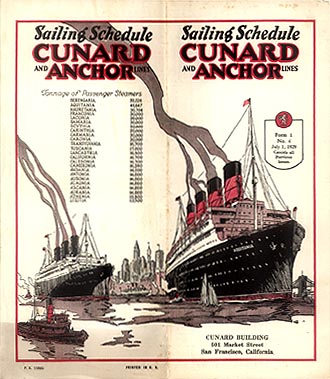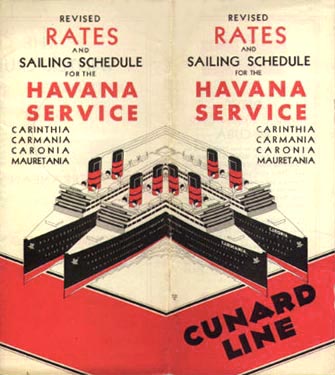
——–
 June 5th 1930
June 5th 1930
Dear Sweetheart: –
I had no chance to call you
My Dear after 5 where I stopped working
and since I cannot call you on the phone
next door, I shall related to you about
the demonstration in this note. 1
I arrived at Madison Square
at the start of the parade, the square was
jammed with countless thousands, Rabbis
and radicals young and old came in
masses notwithstanding the terrific heat to
join in protest against the recent action
of the British government in stopping
Jewish immigration into Palestine.2
I had to be there, dearest I have
been inactive for too long a period in
a cause that is so dear to me, for
the Zionist cause is romantic one
that fire the imagination of every
./.
 2
2
Jewish dreamer, and there I found
myself again amidst old timers,
veterans in the movement, to me it
was a sort of reunion.3
Once more I convinced myself
that when the Jewish cause is in
danger strife among Jewish factions
dissappear, as the parade has
proven, where every faction of Jewish
society life participated.
I know my Dear that you
weren’t feeling well today, but I can’t
see you tonight, that long march in
the hot sun got me all fatigued,
I sat at the store however all
evening but nothing came my way,
Baby I hope that by the time
you read this letter you will have
./.
 3
3
enjoyed a good nights sleep and
be all well, and Baby remember
I will call you as usual at the
usual hour.
Mr. Katzman is waiting for me
to finish this as he wants to close
the store, 4So I will close
with love and Kisses
Your Harry
———–
Matt’s Notes
1 – Papa often used his letters to schedule phone calls with my grandmother, sometimes while she was away on vacation (in the Catskills, of course) and sometimes when he just wanted to call her at home and hear her “sweet voice.” As I recently noted, though, in 1930 he began to write about calling her “next door,” probably because the financial reversals her family had suffered in the wake of her father’s death forced her to share or borrow a neighbor’s phone.
2 – The British government’s move to restrict Jewish immigration to Palestine was in part a response to a series of infamous riots and massacres that had, a few months earlier, demonstrated the severity of Arab-Jewish antipathy in the region. (The Hebron riots are probably the most well-known to casual students of Israeli history.) This policy change did not sit well with Zionist activists; according to the New York Times, an estimated 25,000 took part in the protest “parade” Papa describes above:
In the sultry heat of late afternoon yesterday an 85-year-old Jewish patriarch, holding Hebraic writings, walked slowly down Fifth Avenue, while behind him followed 25,000 of his faith, voices changing an age-old song of Israel, a song of hope…
From Madison Square, down Fifth Avenue and into the depths of the East side, past the Bowery to Rutgers Square, over a tow and a half mile course, the white bearded man, carrying a small blue starred flag of Zion, marched. For nearly three hours the aged man, Dr. Manesse Nezinzha, born in Palestine, walked in the hot sun or stood in Madison Square to listen to a fiery speech of protest by Rabbi Stephen S. Wise…
In Grand Street near Rutgers Square the marchers passed beneath an arch of flags and then gathered under a temporary speaker’s platform on the balcony of The Day, Jewish daily, at 183 East Broadway.
My request for help (via Twitter) finding images of this event yielded a good one from our faithful reader Jim. Its rights are expensive so I’ll have to settle for this link rather than display it here, but I have helpfully included a map of the likely march route below as a courtesy to my legions of obsessive readers who get together on weekends to retrace Papa’s steps. (Note that Rutger’s Square, the sliver of space at the intersection of Rutgers Street, Canal and East Broadway, is now called Straus Square in honor of retail legend Nathan Straus, who devoted his life to philanthropy after his brother, Isidor, died on the Titanic in 1912. Double note that Straus Square is not the same as Straus Park, another triangular bit of greenery at 106th Street and Broadway, which is named for Isidor and his wife, Ida.)
View Larger Map
3 – The Times lists the organizations that took part in the march, many of which Papa has mentioned either directly or by association in his diary and letters, including Hadassah, Poalei-Zion, Zeiri Zion, and Jewish Sports Clubs. Order Sons of Zion, a.k.a. B’nai Zion, the mutual support society and Zionist fraternal order to which Papa belonged, also participated, and I imagine Papa joined the parade as part of their contingent.
Those less familiar with Papa’s diary and letters should note that, despite the countless Zionist meetings, speeches and fundraising events he arranged or attended throughout his adult life, he frequently wrote self-critically about his own “inactivity” or lack of attention to “the movement.” This was, of course, more a symptom of his dedication, his need to keep doing more, than an accurate assessment of his contributions. The Jewish National Fund certainly recognized his work, as evidenced by the certificate pictured below:

The certificate reads, in both English and Hebrew:
FROM THE GOLDEN BOOK OF
THE JEWISH NATIONAL FUND
Provisional Certificate
INSCRIBED in honor of
Harry A. Scheuermann
Inscribed by – The Maccabean Camp Order Sons of Zion #91 – New York, N.Y.
In Recognition of His Devoted Services To The Cause of Palestine
and The Camp
(signed) Israel Goldstein
PRESIDENT OF THE JEWISH NATIONAL FUND OF AMERICA
Issued by the Jewish National Fund of America pending receipt of permanent certificate from Jerusalem
While this certificate is not dated, it was obviously issued at some point before Israeli statehood, though the only other clue as to when Papa received it is the fragment of the World War I-looking war bond poster on which it’s mounted:

If there are any experts on identifying war bond poster fragments out there, I’d be much obliged if you could tell me when you think this one was in circulation. I’ll keep poking around, of course.
4 – Because this letter is the last bit of Papa’s writing I’ve got (yes, it’s true, this is it) it’s hard not to see the Zionist march he describes as a sort of valedictory circuit, a farewell tour conducted for our benefit of his most trafficked pathways between the Garment District and the Lower East Side. It rounds out the narrative of Papa’s Diary Project, once again giving me the sense that Papa has obeyed an unseen god of literary structure in choosing what to write about: When we first picked up his story in 1923, he walked down a crowded Broadway on New Year’s Eve, cold and contemplative, surrounded by people but feeling entirely alone. Seven years later, when he gives us this last look at the world through his eyes, the day is sunny, the weather is hot, and the packed streets, no longer indifferent, throng with friends, allies, and those who make him feel comfortable and at home. His words appear not in a diary written in solitude, but in a letter to the woman he would marry. Does this not seem like a happy ending?
Even our last glimpse of Papa is fittingly conclusive: Sunburned and exhausted, surrounded by dresses and bolts of cloth, he sits at his sewing machine in the tailor’s shop where he moonlights. He is half perched in his chair, ready to pop up, rushing to finish a letter as Mr. Katzman stands impatiently behind him. (Papa usually works with someone he calls Archie, so presumably Mr. Katzman is a more important person, probably the store’s owner.) Papa stands up, seals his letter in an envelope, crosses to the shop’s glass door and pulls down the shade. Papa holds the door open while Katzman exits, turns off the lights, grabs his hat and follows Katzman out. From inside the darkened store we can see Papa, silhouetted by streetlight, as he locks the door. We hear a gentle click as he checks the doorknob for good measure. Then his shadow moves away, mixing in with those of other passers-by, and he is gone.
———–
References
25,000 JEWS MARCH IN PALESTINE PLEA; Led by Patriarch, 85, Paraders Brave Heat to Protest Immigration Ban
COMMITTEES BLAMED FOR PALESTINE INFLUX; British Tell League Mandates Commission Jewish Groups Push Emigration Too Much.
WALKER BACKS JEWS IN PALESTINE PROTEST; Expresses Sympathy for Mass Meeting Against British Ban on Immigration.
QUESTIONS BRITISH ON PALESTINE RIOTS; League Mandates Body Closely Presses Examination on the Wailing Wall Incident























